World Quality Day
Today at Compliplus we celebrate the World Quality Day. This is a perfect opportunity for both employers and employees to spotlight and reflect on the importance of Quality in their operations, services, products, and workplace. In this blog we’ll cover topics such as: Impact of quality, tips how to improve work quality for both employers and employees, and future of quality.
What Quality Is?
Let’s start off with what quality is, and its impact on your business and customers.
Quality is more than just a checkmark on a list; it’s the foundation of trust between businesses and their clients, partners, and employees. By focusing on quality, organizations ensure they’re not only meeting regulatory standards but also enhancing their value proposition. World Quality Day emphasizes the role of quality in sustainable practices, employee satisfaction, and customer loyalty—key elements in today’s competitive and ever-evolving landscape
How Employers can help employees
It’s well known that employers play a massive part in employees success and its very important for you as an employer to recognize that and help your team as much as possible. Here are 5 tips that can help you achieve employee satisfaction and boost quality of their work
1. Provide Ongoing Training and Development
One of the most effective ways to improve work quality is to invest in employees’ professional growth. Training keeps teams informed of industry best practices and equips them with new skills, making it easier to achieve—and exceed—quality standards. Regular workshops, courses, and certification programs allow employees to adapt to changing technologies and practices, maintaining a high level of expertise and motivation.
At Compliplus, we believe that learning is a continuous journey. By offering frequent opportunities to develop, companies can ensure employees have the tools they need to meet quality demands
2. Set Clear Expectations and Goals
Quality outcomes start with clarity. Employees are more likely to deliver high-quality work when they understand exactly what’s expected of them and how their role fits into the organization’s mission. Defining specific, achievable goals helps teams focus on priorities and avoid the frustration that can arise from ambiguous tasks.
Employers should ensure that every project begins with a clear set of guidelines and measurable goals. When quality standards are transparent, employees can direct their efforts more effectively, and managers can offer more constructive feedback
3. Foster Open Communication and Feedback
Creating a culture of openness is essential to improving work quality. When employees feel safe to voice their ideas, ask questions, and seek feedback, they gain a clearer understanding of how they can improve. Regular feedback loops—whether through weekly check-ins, team meetings, or structured reviews—give employees a chance to adjust their work and resolve issues early on.
An open communication policy also helps teams share knowledge, creating a workplace where quality issues can be spotted and solved collaboratively, strengthening the entire organization.
4. Offer the Right Tools and Resources
For employees to consistently produce high-quality work, they need access to the right resources. Outdated tools or inadequate resources can lead to frustration, errors, and inefficiencies, all of which impact the quality of the final product. By providing up-to-date software, modern equipment, and other necessary resources, employers enable their teams to work smoothly and efficiently.
Technology plays a significant role in maintaining quality standards. Quality management systems (QMS) and automation tools can standardize processes, reduce errors, and provide real-time data, making it easier for teams to monitor and achieve their quality goals.
5. Recognize and Reward Quality Efforts
Recognition is a powerful motivator. When employees are acknowledged for their commitment to quality, it reinforces its value and encourages others to follow suit. Celebrating quality achievements—whether through verbal praise, bonuses, or other rewards—demonstrates that quality work is a priority for the organization.
Creating a culture that values and rewards quality efforts makes employees feel appreciated, motivating them to continue producing high-quality work.
These are 5 steps employers can implement to help the team achieve success, but what about employees? How can they help themselves to stay on track and keep their work quality as high as possible, well here are 5 more tips for you to consider.

5 Steps for Employees to Improve Work Quality
1. Set Personal Quality Goals
Define specific goals for each task or project. For example, if you’re preparing a report, set a goal to reduce errors by double-checking each section. Clear objectives help focus efforts and maintain high standards in every piece of work.
2. Seek Feedback and Act on It
Regularly ask for feedback from managers and colleagues. For instance, after completing a project, ask your manager what worked well and what could be improved. Constructive input can reveal areas for improvement and help refine your skills
3. Organize and Prioritize Tasks
Plan your tasks based on deadlines and importance. If you have a high-priority project and a smaller task, schedule your time to tackle the most important one first. Prioritizing work reduces stress, prevents rushed tasks, and supports consistent quality.
4. Focus on Continuous Learning
Invest in learning new skills, tools, or techniques. For example, if your job involves data analysis, consider a quick course on advanced Excel functions. Staying updated with industry trends and best practices keeps your work fresh and relevant.
5. Pay Attention to Detail
Double-check your work for errors and make it a habit to review before submitting. For instance, if you’re sending an important email, read through it for typos or unclear points before hitting send. Consistency in accuracy shows commitment to high-quality standards

Future of Quality
As industries evolve, so too does the concept of quality. With rapid advancements in technology and an increasing focus on sustainability, the future of quality is set to embrace innovation, environmental responsibility, and ethical practices. Here are some key trends shaping the future of quality:
1. Integration of AI and Automation
Artificial intelligence and automation are transforming quality management, enabling organizations to monitor processes in real time, predict quality issues before they arise, and standardize repetitive tasks. These technologies increase efficiency and accuracy, allowing teams to focus on complex quality challenges that require human insight
2. Emphasis on Sustainability and Ethical Standards
Today’s consumers expect organizations to prioritize sustainability and ethical practices. Future quality standards will likely encompass environmental and social responsibility, encouraging companies to create products and services that are both high-quality and eco-friendly. This shift supports a holistic approach to quality, where positive environmental and social impacts are considered essential to an organization’s reputation
3. Data-Driven Decision Making
With the rise of big data, companies have access to vast amounts of information to analyze and improve quality. Data-driven insights allow organizations to identify trends, improve processes, and make decisions based on evidence rather than intuition. As more companies embrace this approach, quality improvement will become more precise and measurable
4. Increased Focus on Employee Wellbeing
As industries evolve, so too does the concept of quality. With rapid advancements in technology and an increasing focus on sustainability, the future of quality is set to embrace innovation, environmental responsibility, and ethical practices. Here are some key trends shaping the future of quality:
5. Quality as a Culture
Quality will continue to shift from being a function within a few departments to an organization-wide culture. Companies are increasingly recognizing that every team member plays a role in upholding quality standards. The future of quality is rooted in creating an environment where quality is everyone’s responsibility, driving collective accountability and long-term success
Summary
Today at Compliplus, we honour World Quality Day by highlighting the essential role of quality in building trust, enhancing employee satisfaction, and driving customer loyalty. Quality isn’t just about meeting standards; it’s a commitment to excellence in every aspect of an organization.
In this blog, we’ve discussed ways both employers and employees can improve work quality, from providing training and clear expectations to prioritizing personal goals and continuous learning. As we look to the future, quality will be shaped by new technologies, a focus on sustainability, data-driven decisions, and a cultural shift toward shared responsibility.
By embracing these practices, organizations can foster a culture of quality that benefits employees, customers, and the community, setting the stage for a sustainable and successful future.






